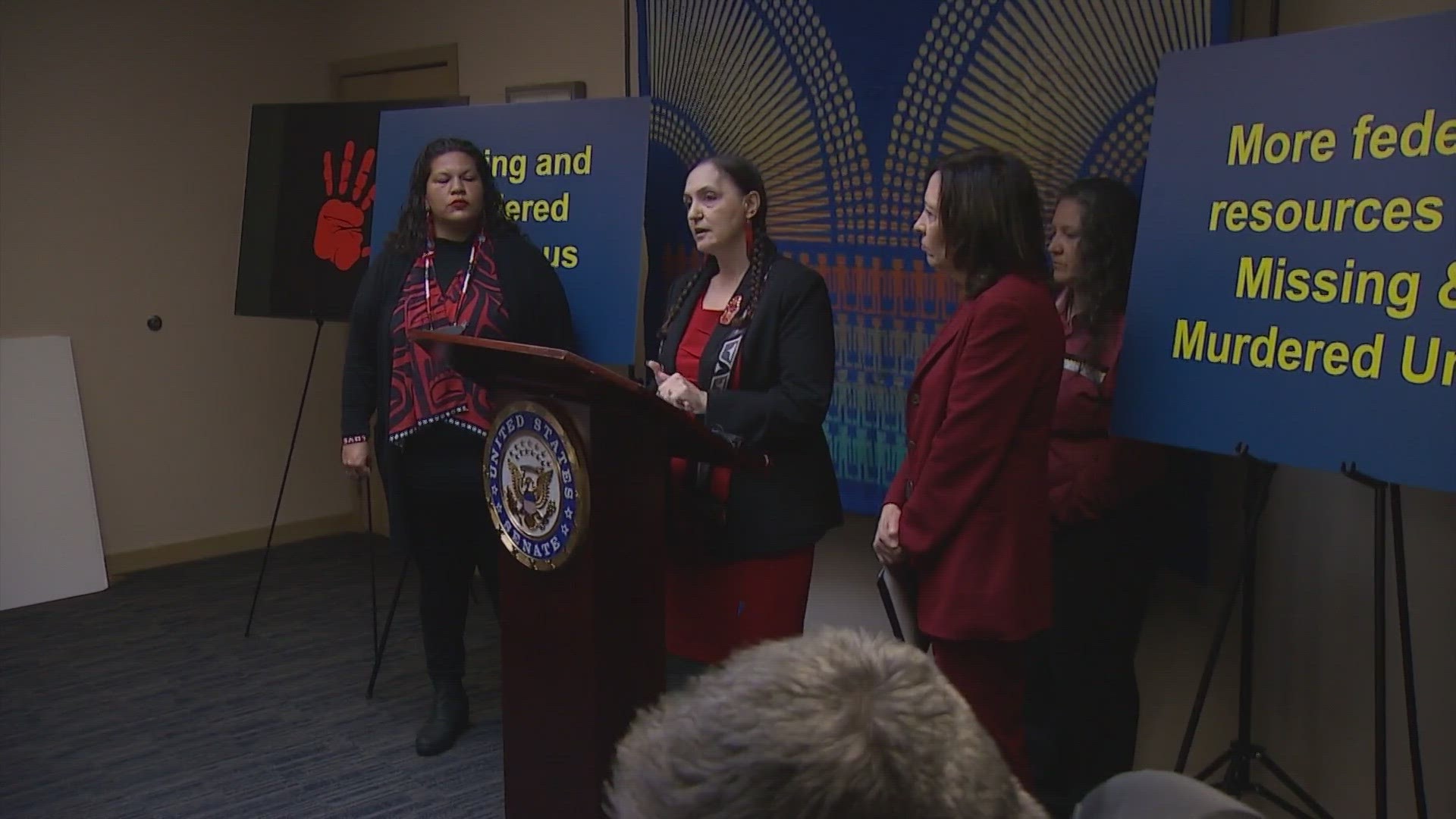SEATTLE — On Missing and Murdered Indigenous Persons Awareness Day, U.S. Senator Maria Cantwell sent President Biden a letter, asking for more federal resources to combat the problem in Washington state.
According to Cantwell, Washington has two federal investigators working under the Bureau of Indian Affairs’ Missing and Murdered Unit. She says more resources are needed.
As of May 1 of this year, 142 indigenous people were reported missing in the state, according to Washington State Patrol.
Puyallup Tribal Councilmember Annette Bryan says she has a connection to the crisis.
"I feel like it is important to share the story as hard as it is to tell to bring awareness to people,” said Bryan.
At the Seattle Indian Health Board, she stood at a podium and told a room full of people about what happened to her family more than 30 years ago.
"I got a phone call that my cousin Anna Lee Chebetnoy had been found. She had went missing. She walked to the little corner store on Valley Avenue on the Puyallup reservation and never came home,” said Bryan. "She was found in King County. Her bones were found on a logging road."
Her cousin was 14 years old when she became part of the growing epidemic of indigenous people missing and murdered.
"We run into jurisdictional issues all the time as well as funding issues,” said Puyallup Tribal Councilmember Anna Bean.
According to the Urban Indian Health Institute, Seattle has the highest number of missing and murdered Indigenous women in the United States.
On Friday, Senator Cantwell said she is sending President Biden a letter, asking for resources.
"We need more federal support working with our local law enforcement, working with our local tribes to help solve these cases,” said Cantwell.
"Most importantly it is about our community. We cannot lose generations of our people any longer,” said Esther Lucero, the President and CEO of Seattle Indian Health Board.
As for Bryan, her cousin's case is still unsolved.
"These stories are here and people are starting to tell them, and I think the problem is even bigger than we even realize,” said Bryan. "It is just unacceptable. We need more resources."

